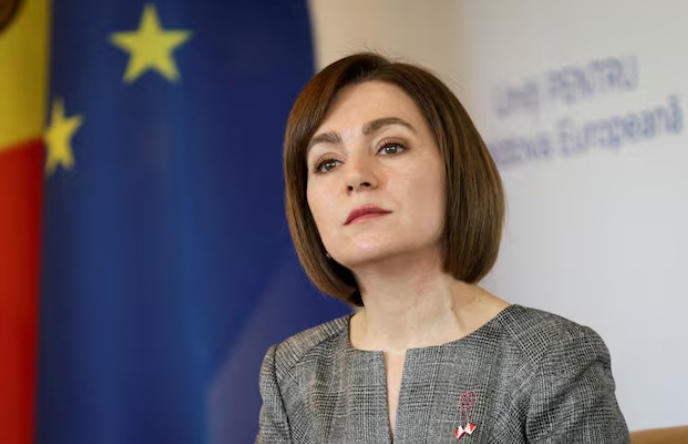Moldovan President Maia Sandu on Monday approved amendments to a criminal code article on treason, a move condemned by Amnesty International, Euractiv reports.
The amendments were approved last week by parliament, dominated by President Maia Sandu’s Action and Solidarity Party, to crack down on organised crime groups that authorities say seek to destabilise the former Soviet state.
Opponents of the reforms say they could undermine freedom of expression and the work of journalists ahead of presidential elections scheduled for October and a referendum on EU membership. Moldova is officially a candidate for EU membership. Alexei Lungu of the “Victory” opposition bloc, said:
This means if you make any objection, you are off to prison.
Vlad Battincea of the Socialist Party said the law amounted to “creating a new form of struggle against people, parties and politicians who have a different point of view. It is an attack on pluralism.”
The changes extend to peacetime treason provisions that previously applied only to a state of war, increase prison sentences and remove the requirement that actions must directly harm the state. They also create a new category of offence of aiding a foreign state.
Amnesty International, in a statement issued in April by its executive director in Moldova, Veaceslav Tofan, urged Sandu not to sign the law. He said:
The broadened definition of high treason is vague and open to abuse, posing a particular threat to the right to freedom of expression. This new definition of high treason could be used to target political dissent and critical voices under the guise of countering malevolent foreign influence.
The struggle of the opposition
In Moldova, the opposition has been holding anti-government protests since May 2022, insisting on the resignation of the Cabinet and President Maia Sandu, who is the informal leader of the ruling PDS party. Manifestants accuse the country’s authorities of failing to deal with the crisis in the economy and energy sector, as well as pressurising the opposition.
As a result of the authorities’ actions, the opposition Shor party has banned in the country, while representatives of several other political formations, including the Party of Socialists, the Renaissance and Chance parties, regularly face searches and detention of their supporters.
